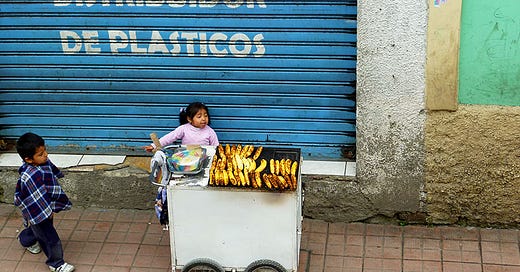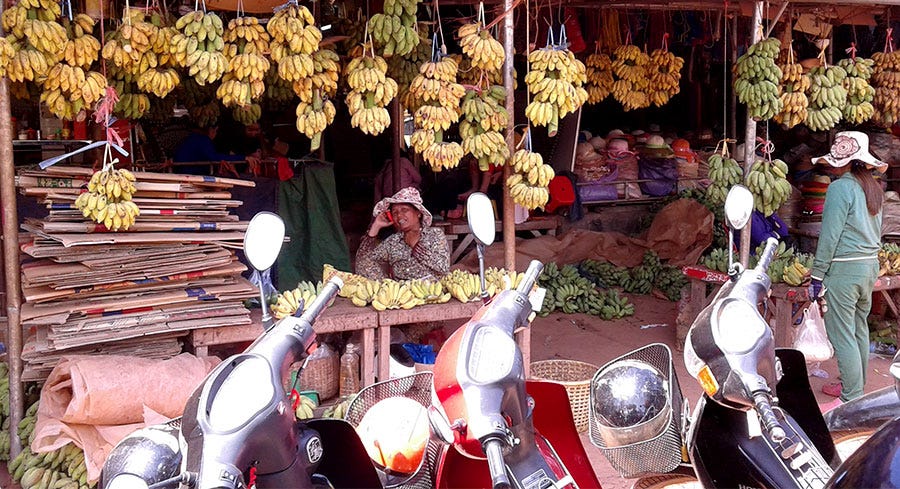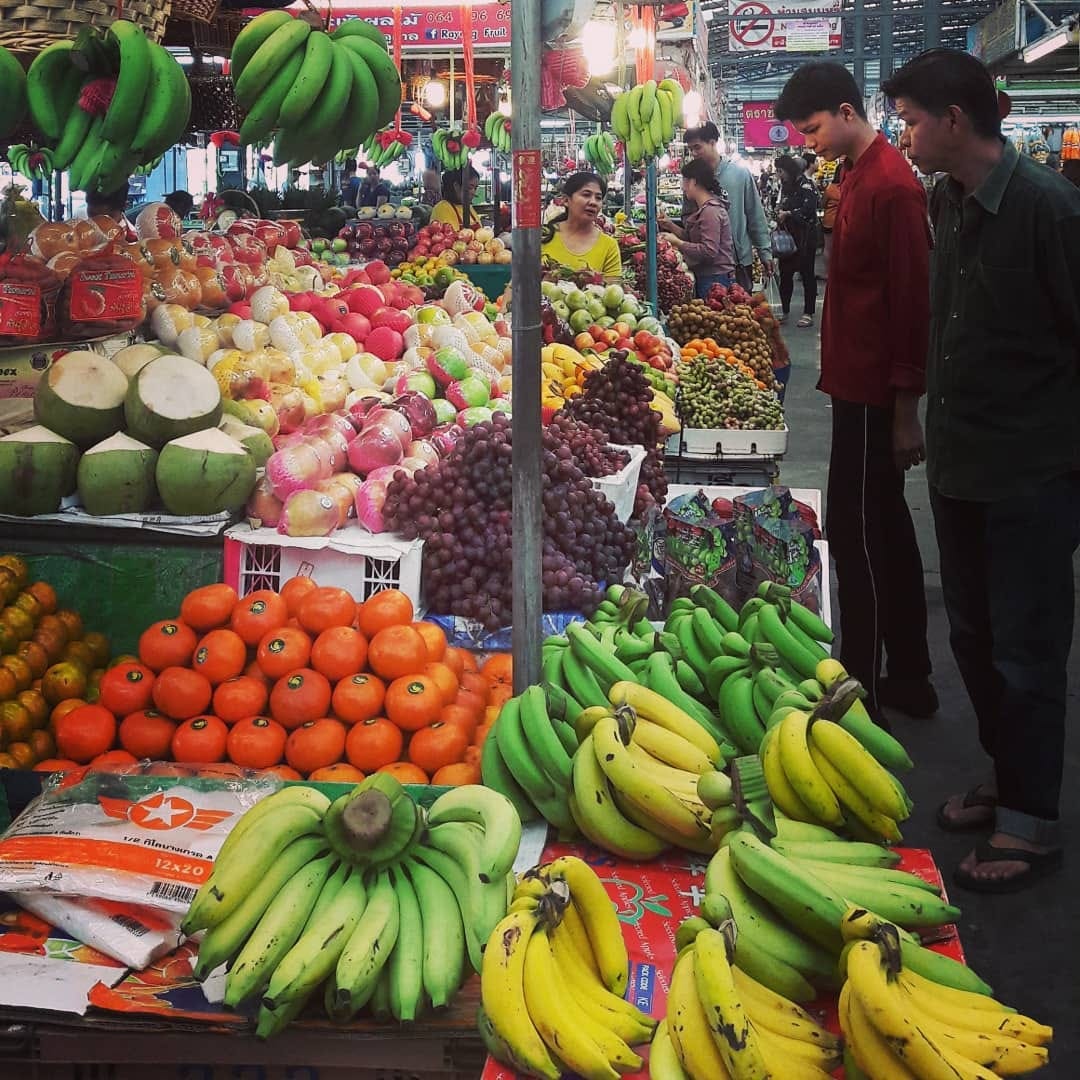The first time someone referred to me as a banana – yellow on the outside, white on the inside – I laughed. Then, I worried that I should be insulted, but then I realized a lot of folks don’t know much about bananas.
First of all, there are many kinds of bananas. According to Dole (and I think they might know something about fruit), there are about 1,000 types of bananas in the world.
Bananas can also be prepared and eaten in a wide variety of ways from grilled, pan-fried, steamed, baked, smoothied, and of course, eaten as is. I should know, I was born and raised in Hawaii. I’ve lived in Ecuador, Thailand, and now Cambodia. I’ve seen these bananas in action and studied them in the wild. Bananas are hardworking fruit.
Bananas are well-traveled and travel well, too. Oh, sure, they get bruised, but they’re tough. I mean, sometimes, you peel back the blackened skin, and the white fruit is untouched.
The implication of being called a banana is that you aren’t really Asian, you just look Asian.
I speak good English because I was born and raised in America. And I’m not fluent in any other languages. My Chinese father died too young to teach my brother and I Chinese. My Thai mother didn’t teach us Thai either. It seemed too daunting, perhaps. Or the climate at the time wasn’t conducive to bilingualism. In the mid-70s, when the Vietnam War ended, it brought a wave of Southeast Asian immigrants to the United States. Some were refugees seeking asylum, and some were war brides and their families.
Mom would be considered a war bride brought over by Dad, even though he isn’t what people typically think of when they picture an American soldier serving in the US Air Force. But I wonder how many Americans know that the most decorated military unit for its size and service in US history was, in fact, all Asian Americans.
Many are second-generation Japanese Americans, or nisei, from Hawaii. They made up roughly two-thirds of the 442nd Regimental Combat Team during WWII. After the bombing of Pearl Harbor, many Japanese Americans were feared, placed under martial law, or put in concentration camps. They were barred from military service, too, so it was remarkable that President Roosevelt activated this fighting unit. In less than two years, they earned over 18,000 awards, including over 4,000 Purple Hearts, 21 Medals of Honor, and seven Presidential Unit Citations.
If you sound Asian to the all-American ear, then, congratulations, you’re not a banana. Or if you speak Chinese or Japanese or something Asian-ish, consider yourself free from any banana checklist. But for those of you like me (oh, woe is me) who speak only English—you’re a banana.
It doesn’t matter if you were raised by an immigrant. You were equally raised on Sesame Street, Nightmare on Elm Street, and 21 Jump Street. You went to public schools. You read Charlotte’s Web and searched for Waldo. Birthdays and American holidays are celebrated. You’re as American as banana bread.
[Did you know that banana bread is American? This tasty treat began making its all-star appearance in the US as early as the 1930s.]
Because, really, what does it mean to be raised by an immigrant? Well, for me it meant that the kitchen was a bit Mystery Science Theater meets The Facts of Life. Communicating could be a session of the game “telephone” or “Chinese whispers”, Connect Four, Clue, Operation, or Twister. Have you ever played Chutes and Ladders? There are times you never get to the end. And it means my mom can never read the book I wrote, or anything I write.
The strange thing is some Asians envy my banana status. It comes from believing I’m showing off my English language skillz, but sadly, nothing could be further from the truth—well, I can think of a few other things, but never you mind that right now. They might also be under the impression that life is better as a native English speaker. I’d like to think so, especially as an English as a Foreign Language teacher, but does anyone need to learn English anymore? After all, does it matter what language you speak if you’re rich? Money is the currency that creates opportunities, prestige, and power. I’m just a working banana myself.
Whenever I see or visit my Thai family, they give me bananas. We don’t speak the same language. My Thai is not spectacular by any stretch, and only the younger generation knows some English. So, family communicates by giving me food, like bags of banana chips, or whole heavy bunches that come with hitchhiking black ants.
But even before I left America for a life abroad, I started to get an inkling that how others perceived me was not who I am. To be called a banana is a tee-hee term, tongue in cheek, a search to label someone who eludes and escapes conventional beliefs. Bananas, like me, require time to appreciate. And I understand I’m not to everyone’s taste, but a banana can’t help but be a banana.
References:
https://www.dole.com/en-gb/blog/nutrition/how-many-types-of-bananas-are-there
https://data.nextshark.com/decorated-military-unit-u-s-history-asian-american-battalion
https://www.nationalww2museum.org/war/articles/442nd-regimental-combat-team
https://en.wikipedia.org/wiki/442nd_Infantry_Regiment_(United_States)









This is such a wonderful piece, Lani, and I LOVE your reading voice!
What a layered and complicated topic. I have friends here in Beijing who present as Chinese, but because they were brought up in Australia or Brunei or the UK and have a complicated heritage, they don't speak Chinese. Their English, of course, is faultless, but the complexity of their ancestry and upbringing is not considered by people who imagine that if they look Chinese they must speak Chinese.
My parents were immigrants, having both moved to Australia from the Netherlands with their families after the war. They chose not to teach me and my siblings Dutch, as they thought it more important that their kids integrate than that they share their parents' mother tongue. I consider this an enormous loss, but no-one has ever labeled me as anything or had any particular expectations of me as a (non-Dutch speaking) daughter of two Dutch parents. The rules and expectations do not apply equally to everyone!
Thank you for this fantastically interesting and thought-provoking piece. 🙏
Oh boy can I relate to this post! I used be called a banana all the time and wondered if there was something wrong with me. Of course not, but I was ashamed by the way I was brought up and when I lived in Asia, would internalize the jealousy people felt towards me when they heard me speak English. After a while, I was more sad and a bit angry that certain languages were revered, and that somehow we have to put certain markers of an identity on a pedestal.